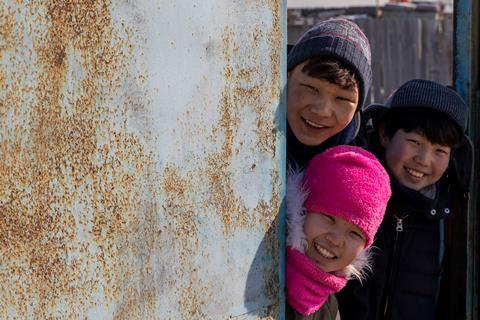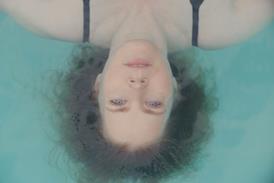A teenage boy attempts to study his way out of poverty in this assured debut from Mongolia

Dir/scr: Zoljargal Purevdash. Mongolia/France. 2023. 98mins
In the Mongolian capital of Ulaanbaatar, an impoverished teenage boy finds himself torn between his loyalty to his family and dreams of a better future for himself. This assured feature debut from Mongolian filmmaker Zoljargal Purevdash sees these personal experiences become a microcosm of the tensions felt throughout this developing country, where traditions are being abandoned in the march for progress — leaving many stranded well beneath the poverty line.
Purevdash and her cast approach this subject with a gentle touch
Premiering in Un Certain Regard, this first Mongolian film to play in Cannes official selection is a drama which is rooted in the political but is never heavy-handed. Purevdash and her cast, particularly charismatic newcomer Batsooj Uurtsaikh in the lead, approach this subject with a gentle touch, which could well appeal to further festivals and, possibly, distributors with a global focus.
Purevdash won several festival prizes for her 2020 short Stairs, also set in Ulaanbaatar, about a disabled man struggling to overcome daily obstacles. That theme is expanded on here, although for 15-year-old Ulzii (Uurtsaikh) the hurdles are more cultural than physical. A gifted physics student, he is training for a national competition with the prize of a scholarship to one of the country’s best schools. Yet his focus is constantly being pulled away by the challenges of life in a yurt on the outskirts of the capital.
Ulzii shares this small space with his mother (Ganchimeg Sandagdordorj) and three younger siblings, his late father having moved the family from the countryside in search of work. (The fact that he then had the audacity to die, leaving his now-alcoholic wife to struggle alone, is a particular bone of contention with her.) Ariantugs Tserenpil’s sensitive production design renders this space as cosy rather than rundown — this is a family home, after all, and there are photos on the wall, toys scattered on the floor and a television in the corner. Indeed, the whole film is careful to portray its characters as dynamic individuals attempting to break free of economic shackles rather than victims of circumstance.
For Ulzii, that means balancing the pursuit of his dreams with caring for his brother and sister after his illiterate mother returns to agricultural work in the country (and deposits her youngest son with a family member). There’s a genuine tenderness between these siblings that brings moments of laughter and warmth; the only kind to be found in the freezing Mongolian winter, which soon infiltrates the yurt. The endless need for coal and wood to fuel the small fire becomes all-consuming; if only, bemoans his brother, they could hibernate until summer, like bears. Too proud to ask for help — and further encumbered by his own outdated notions of masculinity — Ulzii is eventually forced to take logging work that jeopardises his academic prospects.
There’s a constant push-pull dynamic here, both within Ulzii and the wider environment. The dichotomy of daily life is often captured by cinematographer Davaanyam Delgerjargal in a single frame: Ulzii’s adult sister undertaking a traditional remedy for her son’s mouth infection — involving a horse bridle and Ulzii’s toe — in the luxurious confines of the high-rise apartment in which she now lives; Ulzii’s box-fresh neon green trainers (paid for by a summer of construction) gleaming in the meagre light of his yurt. In the sparkling city centre, well-dressed protestors march against the oppressive air pollution which blankets the landscape— yet, posits Purevdash, widespread poverty is even more of a threat to life.
Composer Johanni Curtet combines the distinctive and culturally-specific sounds of throat singing with hiphop, beatbox and, occasionally, plaintive country-style strings, suggesting something of an identity crisis. Indeed, like Ulzii, Mongolia is a country struggling to find its place in a changing world.
Production companies: Amygdala Films, Urban Factory
International sales: Urban Sales sales@urbangroup.biz
Producers: Zoljargal Purevdash, Frederic Corvez, Maeva Savinien
Cinematographer: Davaanyam Delgerjargal
Production design: Ariantugs Tserenpil
Editing: Alexandra Strauss
Music: Johanni Curtet
Main cast: Batsooj Uurtsaikh, Ganchimeg Sandagdordorj, Nominjiguur Tsend, Tuguldur Batsaikhan
























